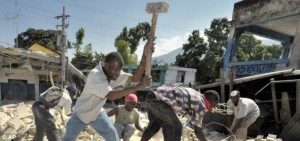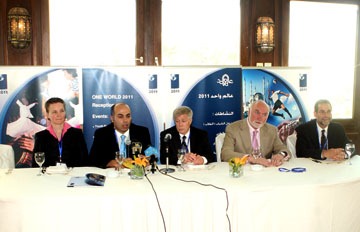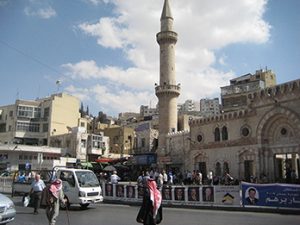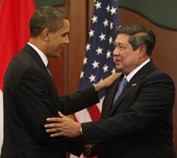Blog
Posted on March 22, 2010

Even with the massive humanitarian response to the January earthquake in Haiti organized by the developed world, the New York Times’ Lawrence Downes reports that the reconstruction effort is failing to meet the needs of all citizens. Security concerns have not been met in some of the sprawling re-settlement camps. Debris and rubble left over from the earthquake has yet to be cleared in order to allow for new construction. Sufficient clean water is not being delivered, and as a result sanitation is suffering. But there is still hope, as Downes contends in his article “Haiti’s Do-It-Yourself Recovery.”
To make up for the lapses in the organized reconstruction effort, the Haitians have taken it upon themselves to rebuild. In most cases, these efforts are exemplary of one of Global Washington’s principles of aid of effectiveness: local ownership of aid projects.
Haitians have organized volunteer patrols to provide safety in areas of refugee settlements not overseen by any United Nations security presence. With the help of a retired engineer, Frantz Liautad, a group of Haitians have begun their own campaign to deliver clean water and food to the refugee settlements, as well as clear debris still left over from the earthquake.
Also, in an effort to increase transparency, coordination and local ownership of aid projects, three of our principles of aid effectiveness, Haitians have created the Civil Society Watchdog Group. The Civil Society Watchdog Group has charged itself with monitoring and evaluating the humanitarian efforts in Haiti to ensure the aid groups are accountable to the Haitian population. In order to strengthen coordination, this group is working to facilitate communication between the organizations and projects responsible for Haitian reconstruction. To promote local ownership, the Civil Society Watchdog Group encourages Haitian citizens to take a more active role in the reconstruction process.
It is encouraging to see that where the top-level efforts have come up short, local citizens are taking it upon themselves to ensure Haiti’s reconstruction. Such a show of commitment and ingenuity is a positive sign that sustainable development can be achieved if the right steps are taken. Using our principles of aid effectiveness as a framework, we can reform the aid process and take the right steps in order to ensure everyone the opportunity to achieve a happy and healthy life.
To learn more about Global Washington’s principles of aid effectiveness, please download and read our white paper.
Posted on March 17, 2010

OneWorld launches in Jordan, refer to OneWorld article below for more information. Photo courtesy of OneWorld2011
OneWorld Now!:
One World 2011 events will take place in the summer and fall of 2011 in Seattle, Washington

Photo courtesy of OneWorld2011
Global Washington member, OneWorld Now, is a proud founding partner of OneWorld 2011. One World 2011 is an international cultural, arts, education, medical exchange and sporting event that will build partnerships, and a bridge for cultural understanding between the United States and the Muslim world. In addition, the One World 2011 Medical Conference will be held in Seattle, focusing on health care and research in a global context.
Seattle University:
Seattle University appoints new leader for global engagement initiative
Seattle University has appointed a new associate provost, Victoria Jones, PhD, for global engagement to lead a strategic academic initiative to extend the international reach of the university and advance the global education of its students.
Washington State University:
Southwest Washington Math, Engineering and Science Achievement program (MESA) will host its sixth annual MESA Day on March 20
WSU Vancouver houses, and is a partner of, Southwest Washington MESA. MESA provides enriching educational opportunities that help build a pathway to college and careers in the science, technology, engineering and math (STEM) fields for students who are currently underrepresented in those fields—African American, Latino, Native American, and female.
BRIDGES To Understanding:
BRIDGES offers a one-day workshop for educators on April 17th
BRIDGES is inviting to learn the basics of teaching their students how to produce digital stories about their lives, communities and common global issues, and then share them with their peers around the world.
BRIDGES is seeking international interns
Bridges’ international interns help middle and high school students at partner schools in Peru, India, South Africa or Guatemala and gain greater cross-cultural understanding by learning directly from their peers across the globe through digital storytelling.
EarthCorps:
EarthCorps welcomes new international participants
As part of its mission to build global community through local environmental service, EarthCorps brings emerging leaders from around the world to take part in environmental service programs. International participants live with local homestay families as they restore wetlands, plant trees, and construct hiking trails. Some of this year’s come from: Brazil, Colombia, Guatemala, Kazakhstan, Kenya, Morocco, Russia, and Zambia
US Education:
United States has slipped from second to 14th in graduation rates among the world’s richest countries
The U.S. children of today will be competing in a global economy. That means their education needs to be world-class, which some troubing signs indicate they are not getting. An expert on global education systems told the U.S. Senate earlier this month that the United States has slipped from second to 14th in graduation rates among the world’s richest countries in the past decade – not so much because the U.S. is slipping but because other countries are doing so much better.
New US education report reveals boys are falling behind in reading and writing abilities
Despite the deadlocks regarding global warming, the domestic economy, and health care, Obama is making headway in education reform. His bottom line goal: the United States to have the world’s highest proportion of college graduates by the year 2020. The likelihood of the US jumping from the middle of the rankings of developed nations to the top in just 10 years is not plausible. However, it is drawing attention to further understand flaws in our current education system and those who need help the most. In a report by the nonpartisan Center on Education Policy, an in-depth look at who is and isn’t passing state tests shows gender disparities between males and females. The survey shows that girls tie with boys in math skills. The reading differences, meanwhile, are profound, with boys a full 10 percentage points behind girls. Boys are even farther behind in writing abilities.
Posted on March 16, 2010

President Obama meets with Indonesia's President Yudhoyono, refer to article below. Photo courtesy of Brookings
Haiti:
Should Haiti be made a UN protectorate? Some say that is the best option for this country whose governance is shaky in the best of times, while others are concerned about taking away its autonomy. Read the debate at a Brookings event here.
Foreign Aid Reform:
Integrating the three D’s: Former USAID Administrator J Brian Atwood spells out how to elevate development assistance in US foreign policy, and what the challenges will be for diplomats, defense personnel, and development professionals.
With the release of initial findings from the State Department’s Quadrennial Diplomacy and Development Review (QDDR) expected very soon, MFAN has launched a blog series to spur debate on the review and its importance to foreign assistance reform and the future of U.S. development efforts. The first post – “Time for Hard Questions on the QDDR” by George Ingram – poses candid questions to keep in mind as we read and respond to the release of the initial QDDR findings. George’s piece will be followed by material from others across the Network on the QDDR, the Presidential Study Directive on Global Development Policy, USAID, country ownership, gender integration, and other reform-related topics.
Other Development News:
President Obama makes symbolic visit to Indonesia
Often described as the most important country in the world that people know the least about, Indonesia welcomed a visit by President Obama. Many feel it is the beginning to placing the country on the map. Furthermore, the “Comprehensive Partnership” that the two countries will formally launch represents the kind of long-term commitment that can go far in helping Indonesia pull its weight in global affairs.
Indonesia urges US to reconsider ban on commando training
Indonesia’s special forces have concentrated on counterinsurgency issues in recent years, but were accused of major abuses in the former Indonesian province of East Timor in the ’90s. As a result, several countries, including the U.S. and Australia, suspended joint military training in Indonesia. The Indonesian Foreign Minister Marty Natalegawa expressed hope that full military cooperation between the two countries could resume. The issue is likely to feature in talks between President Barack Obama and his Indonesian counterpart, Susilo Bambang Yudhoyono, next week in Jakarta.
The Overseas Development Institute launched a report on the key recommendations for ‘fragile states’
The meeting series on Development, Security and Transitions in Fragile States, organised by the Overseas Development Institute (ODI) in partnership with the Dutch Ministry of Foreign Affairs, brought together an impressive array of experienced and respected politicians, analysts, policymakers and researchers from a vast range of disciplines and background. The speakers discussed the nature of fragility, relationships between development and security, and the challenges of supporting transitional and state building processes.
New aid program challenges traditional development community’s beliefs about poor people’s ability to make wise use of cash
Oxfam Great Britain’s “unconditional cash transfers” are cash payments with no conditions other than that it couldn’t be used for alcohol, drugs or gambling. Oxfam’s reviews of the program found that families had used the money to improve their household food security and overall income, School dropout rates decreased, and gender equity in the village improved, with women sharing control of the money.
Former Air Force sergeant asserts foreign development aid is critical to our national security strategy
Will Bennett, former Air Force technical sergeant, spent 12 years engaged in supporting peacekeeping and wartime missions in Bosnia, Kosovo and Iraq. He says despite many tough budget choices ahead it is imperative that Congress maintain U.S. investments in foreign development not only to help prevent vulnerable regions around the world from descending into strife but also to make the American public safer.



